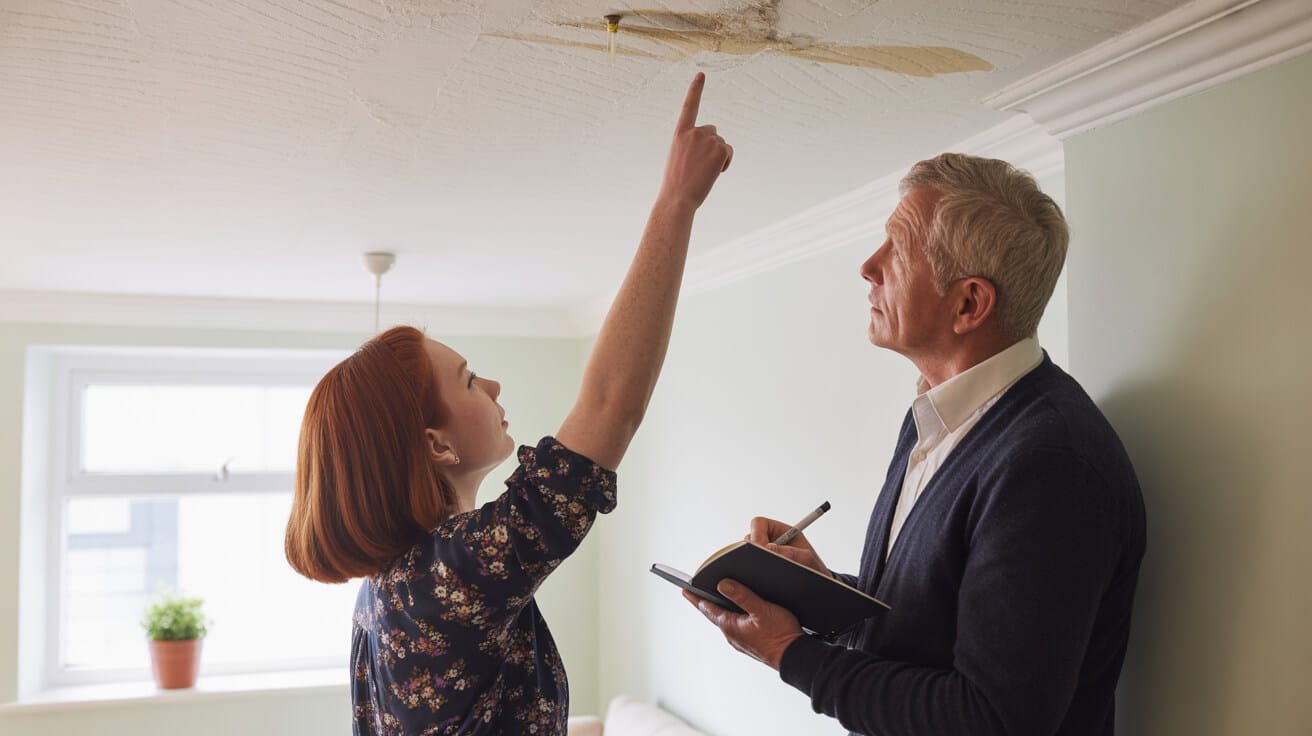 Debunking Heat Pump Myths Cold Weather, Costs & Noise
Debunking Heat Pump Myths Cold Weather, Costs & Noise

Why Do Heat Pump Myths Still Put Your Property Strategy at Risk in 2024?
Uncertainty around heat pumps isn’t just a minor nuisance in today’s property world—it’s a direct threat to how you manage costs, tenant satisfaction, and your building’s compliance standing. Even as government grants reach all-time highs and EPC standards get sharper, questions still nag at the back of your mind. Owners, landlords, letting agents, and property managers hear it every week: “Will I freeze in winter?” “Will my running costs spiral?” “What if tenants or neighbours complain about noise or botched instals?”
Every unknown adds up to one more year of missed savings and avoidable stress.
Look closer and it’s clear: this friction doesn’t stem from a lack of government support or technology advancement. It flourishes because rumour—in WhatsApp groups, dated trade advice, or even idle comments from well-meaning installers—spreads faster than facts. Social media amplifies it; conflicting estimates and fluffy promises from “fit and forget” contractors worsen the trust gap.
If you’re a letting agent, you’re fielding tenant concerns. If you’re a landlord, you need capital returns without fear of failing a grant or EPC audit. If you’re a property manager, you want upgrades that keep residents satisfied and make future handovers easier—not a tech roll of the dice.
The deck is stacked in 2024: properties without low-carbon heating solutions face everything from blocked lettings to stunted capital gain in a fast-evolving regulatory environment. Let these myths go unchecked, and every year wasted equals compounded bills, compliance headaches, and lost ground to competitors who moved first.
But here’s the opportunity: the data and compliance framework finally exist to sweep away the folklore and deliver a roadmap you can trust. For the first time, owners and agents can insist on WRAS-certified procedures, MCS grants, and ironclad workflow documentation—shielding their properties against winter, bills, and red tape in one go.
Is Heat Pump Installation Still a Luxury—Or Does New Funding Put It Within Reach?
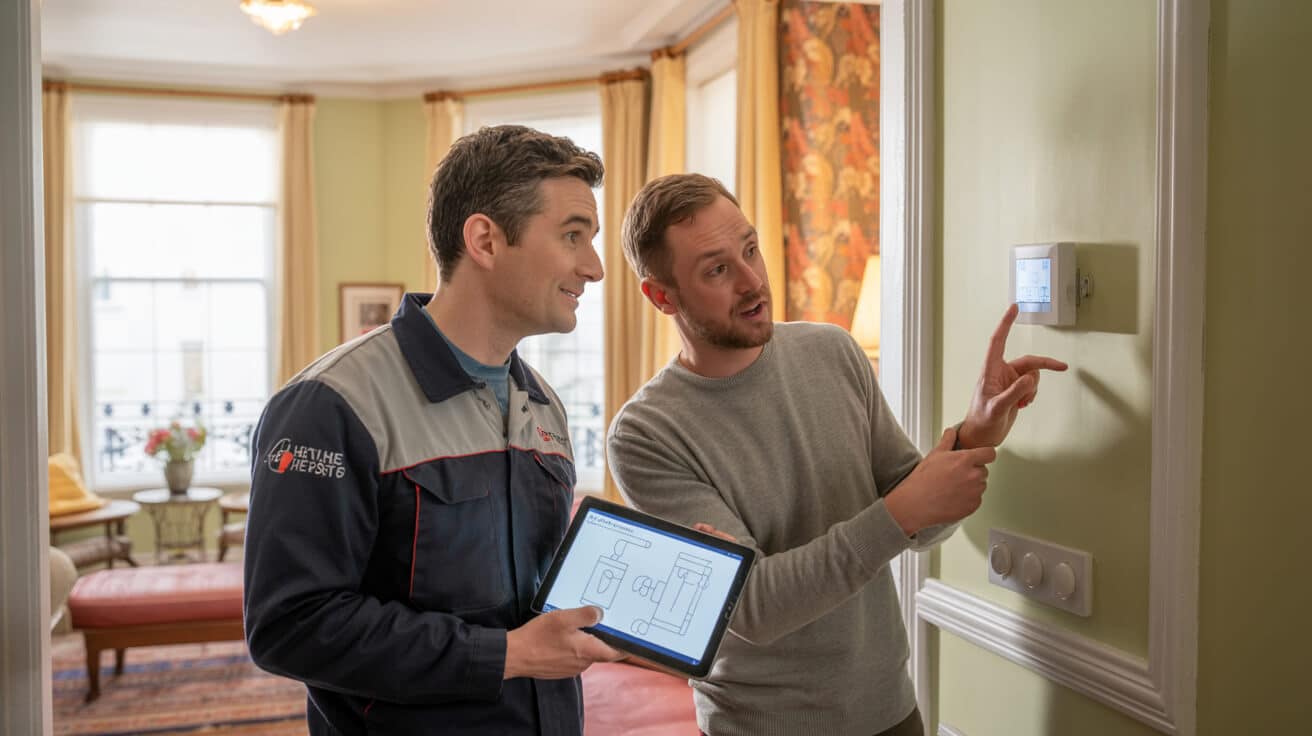
There’s still a widespread myth that heat pump instals are “luxury-level”—reserved for eco-pioneers, premium new builds, or those with seemingly bottomless budgets. In reality, 2024 has utterly rewritten the equation thanks to the Boiler Upgrade Scheme, which offers £7,500 toward qualifying heat pump installations—a figure that often equals or even surpasses the up-front difference with a like-for-like boiler swap.
Here’s how the maths works out:
- Total instal costs (hardware + labour): usually land between £7,000 and £14,000 for air source heat pumps. But after the £7,500 grant, you’re realistically looking at £2,000–£6,500 all-in, largely depending on the property’s size, existing infrastructure, and level of insulation.
- Cylinder swap: If shifting from a combi-boiler, you’ll factor in £800–£1,500 for a modern unvented tank. Yet most traditional homes and flats already have compatible cylinders or need only simple plumbing tweaks.
- Radiator upgrades: For period stock, expect 2–4 rads needing upsizing—typically £200–£400 per swap. Most piping remains untouched.
- Smart controls, insulation: Modern upgrades like app-based stats run £200–£600. Insulation—often a grant-linked or EPC-driven job—shaves pounds off future bills and brings multi-year compliance value.
Most UK homes now qualify for heat pumps at the same outlay as a boiler swap—and all with grant and EPC alignment baked in.
The key shift is transparency. Itemised, grant-integrated quotes from WRAS- and MCS-accredited installers (like Plumbers 4U) mean your quote shows every element—no post-fit surprises, grant loophole debacles, or poorly mapped extras that cause compliance fails. You also get WRAS, G3, WaterSafe, and Part L/G documentation built-in—so your project clears every letting, selling, and audit scenario from the outset.
Today, for the majority of properties—Victorian terrace, modern flat or 1950s semi—cost is no longer the blocker unless you’re holding on to myths instead of booking a proper survey.
Will Heat Pumps Lower Heating Bills, or Do Energy Costs Wash Out the Savings?
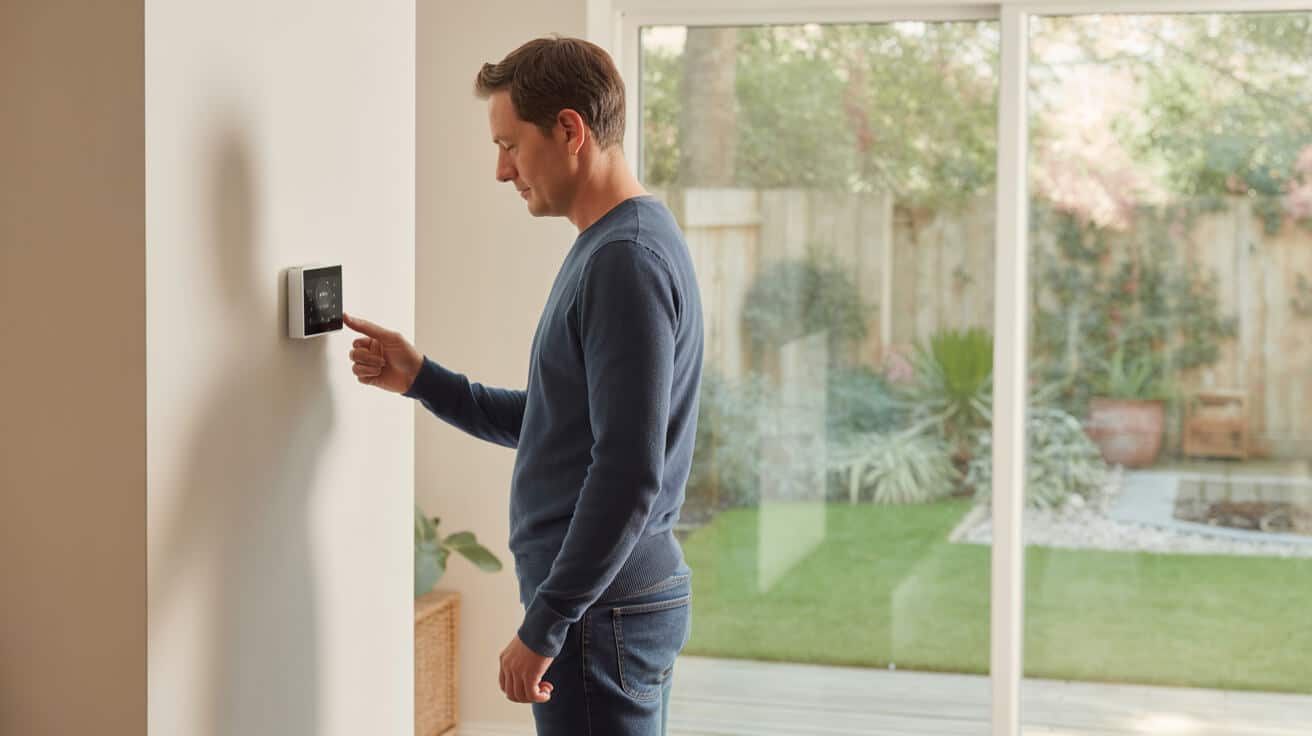
For many property professionals, the “running cost” question is the biggest barrier. Will switching to a heat pump lower your bills, or are you just trading in one set of fixed costs for another—maybe even higher?
Let’s cut to the data. In an average UK 3-bed home, a combi boiler racks up around £900 per year in gas according to government data. Modern air-source heat pumps—provided they’re specified properly and matched to your insulation levels—typically land between £900 and £1,100 per year on current tariffs. Critically, those numbers shift in the heat pump’s favour whenever:
- You access daytime or time-of-use electricity tariffs
- The property is well-surveyed and insulated (think loft top-up, cavity infill, or basic draughtproofing)
- Smart controls or weather compensation features are layered in—for steady, even heating rather than costly bursts
The hard truth behind the “my bill went up” horror stories? Nearly every time, it’s the result of bad survey work, undersized or ill-sited units, zero insulation, or a race-to-the-bottom instal. When real professionals run a property-specific heat-loss calculation and ensure compliance with MCS, WRAS, and G3 steps, users get steady warmth and total cost certainty—not surprise spikes.
A properly surveyed, tailored heat pump delivers savings equal to or better than gas—and with more regulatory upside.
Pair your new system with the upgrades listed in an itemised survey, and your property stops being a money vacuum—whether you live there or just want happy tenants and a healthy audit trail.
How Loud Are Modern Heat Pumps—Will They Upset Neighbours or Tenants?

Ask 100 landlords or agents what holds them back from heat pumps, and “noise risk” makes the top five every time. There are urban legends about “buzzing fans keeping everyone up at night” or angry neighbours banging on the fence. What’s the reality in 2024?
Modern air-source heat pumps are engineering marvels compared to earlier models. They now deliver 40–60dB at one metre—comparable to gentle conversation or light rainfall. More importantly, UK law sets a strict 42dB boundary max at the property edge, and any installer worth their accreditation (Plumbers 4U included) will supply you with before-and-after sound checks, anti-vibration mounts, and full manufacturer spec sheets that exceed these standards.
Noise only becomes an issue when shortcuts are made on placement, siting, or vibration control—think cowboy jobs that ignore WRAS/MCS procedures or bin off proper wall mapping. If you’re getting tenant or neighbour complaints after a compliant instal, the fix almost always takes less than an hour: repositioning, pad upgrades, or minor physical tweaks.
Modern heat pumps run at fridge-level noise—when sited and mapped by accredited engineers.
Insist on dB reporting and WRAS, MCS, G3, and WaterSafe credentials in your instal documentation. This ensures you never face last-minute legal wrangles or tenant turnover due to noise.
Can Heat Pumps Really Handle UK Cold Snaps—Or Is “Frozen Home” Still a Risk?
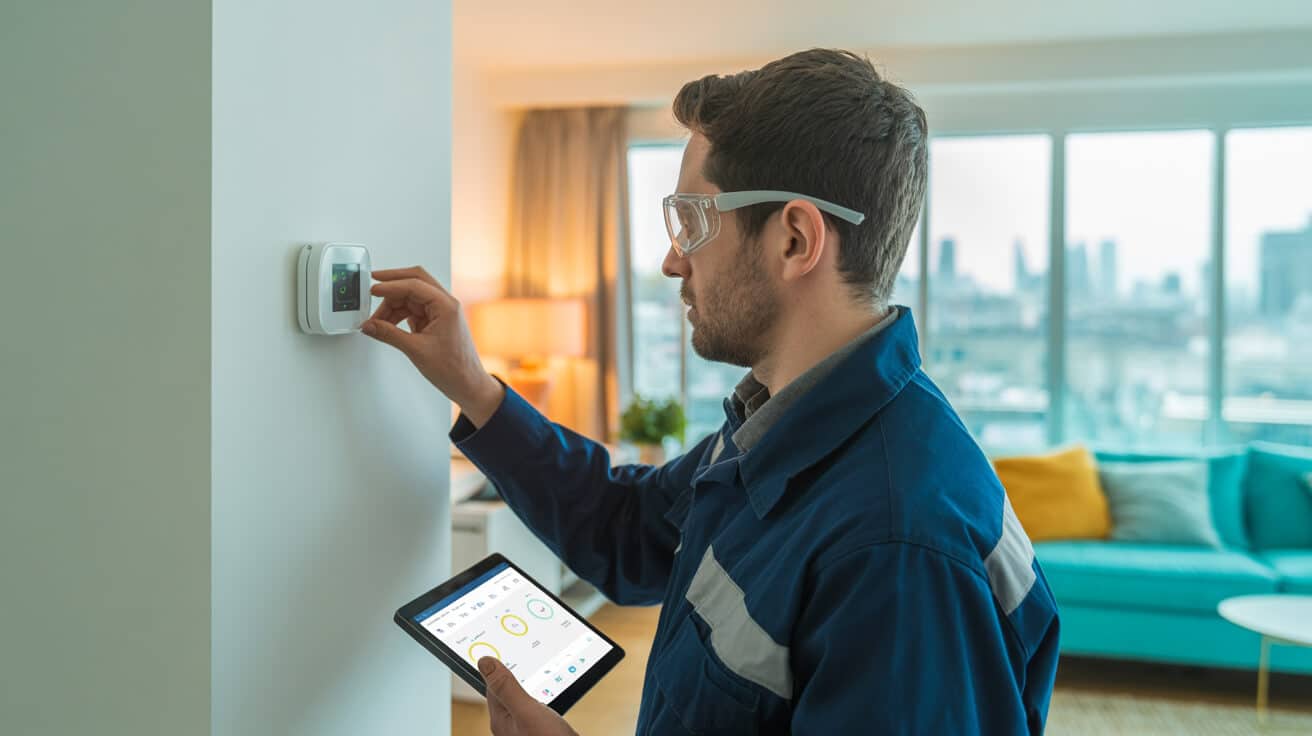
This is the classic worry—fuelled by decades-old stories and a lack of clarity about what modern heat pumps really do. “Do they stop working in deep winter? Will my tenants wake up freezing?” Here’s what reputable engineers, manufacturers, and field instals show in 2024:
- Next-gen air-source heat pumps are rated to perform at –15°C and colder. That’s below anything the UK grid has thrown at us in living memory.
- UK real-world data shows that, even in the worst snap, a properly sized, well-surveyed pump maintains steady indoor comfort—efficiency (COP) drops from ~3.5 at 7°C to ~2 at –10°C, but heating output does not fail.
- Failures and horror stories always root back to “quick-fix” instals: skipped survey, under-sized hardware, ignored insulation advice.
Modern controls and firmware stack tilt the odds dramatically in your favour:
- Smart thermostats: and automated weather compensation ensure your system shifts priorities during cold snaps—hot water gets fast-tracked, and rads are kept cycling rather than letting the property chill.
- Manufacturer upgrades: roll out climate and software patches proactively, meaning the system “learns” from past seasons for even better reliability.
It’s never cold weather that stops a heat pump; it’s always shortcuts at design or instal.
With the right engineer and compliance-first approach, a cold winter is just another checkmark—not a risk to warmth, tenancy, or letting compliance.
Do Heat Pumps Only Suit Modern Builds—or Can Older Properties Benefit Too?

A persistent myth is that retrofit heat pumps only make sense for ultra-insulated, new-build homes. The truth, in 2024, couldn’t be more different. More than half of all instals are now in “standard stock”: pre-war terraced homes, 60s/80s flats, and classic semis—all with variable insulation, ancient rads, and pipework that’s seen a few generations.
Here’s why older stock is ideal when you plan properly:
- Basic insulation upgrades: (loft, cavity, underfloor) make the single biggest difference—costing less than most predict, and often grant-eligible when timed with a heat pump instal.
- Cylinders and pipework: Swapping old tanks (especially open-vented types) or adding anti-legionella mixing valves is now standard, fast, and itemised on quotes.
- Minimal internal disruption: Only a small number of radiators (two to four for the average home) usually require up-sizing; full repipes are rare.
- Compliance upside: Landlords and owners secure or climb EPC bands (essential post-2028 for lettings), and future-proof resale or grant eligibility.
With expert mapping and transparent upgrades, even pre-war homes run quietly and efficiently.
The secrets: property-specific surveys, zero “package deals,” and an installer willing to document and photograph every single upgrade for compliance and peace of mind.
Debunking the Major Heat Pump Myths—Your Quick Reference Table
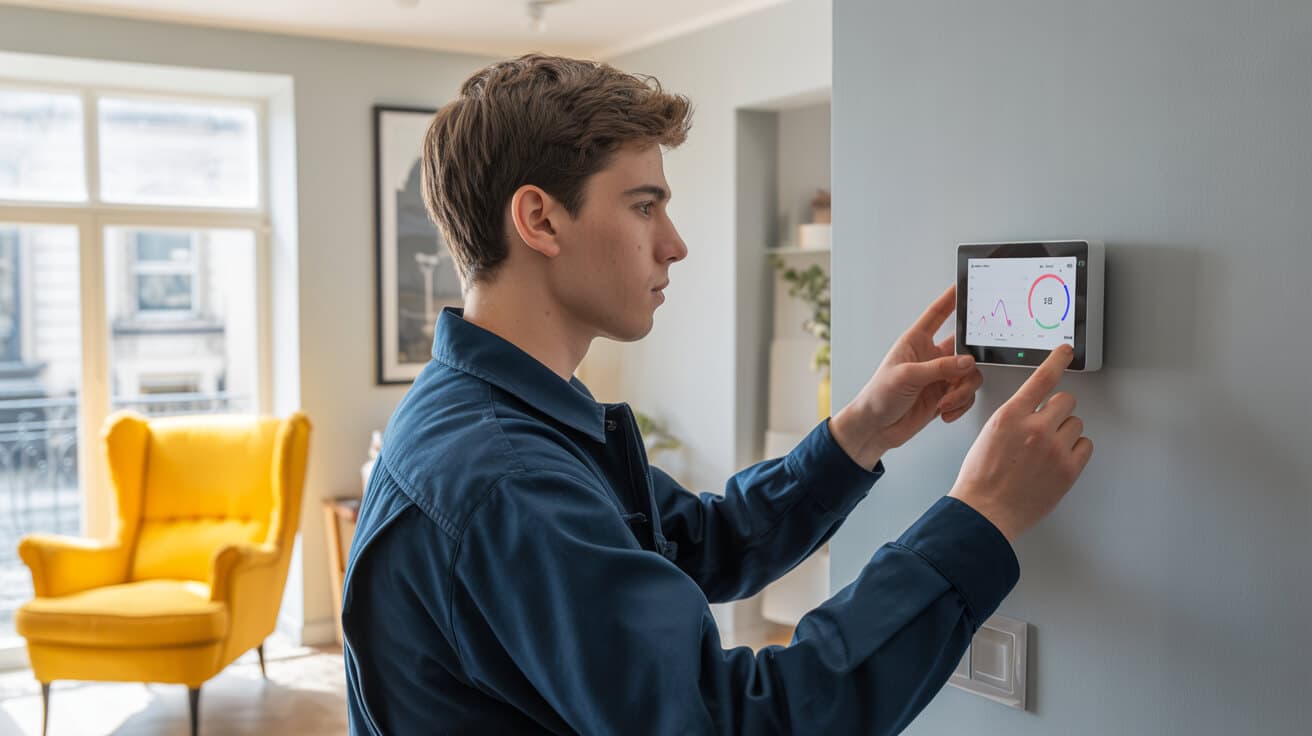
Despite modern advances, four big myths keep cropping up—and each can put your property plans at risk if you let them linger. Here’s what the data actually shows in 2024:
| Heat Pump Myth | 2024 Fact—What Actually Happens | Data Source |
|---|---|---|
| Only for new builds | Over 50% of instals now retrofits (all stock) | edfenergy.com |
| Always noisy—disturbs neighbours | Certified units run at 40–60dB, < 42dB legal | nibe.eu |
| Freeze in cold weather | Rated to –15°C+; survey & spec matter most | grantuk.com; greenmatch.co.uk |
| Fail grant or EPC audit | MCS/WRAS/WaterSafe/G3 process ensures pass | gov.uk; Plumbers 4U |
Before you commit—protect your property and reputation:
- Get a certified property survey: (MCS/G3/WRAS/WaterSafe)
- Demand a line-by-line quote with written guarantees:
- Don’t skip small but vital steps: Insulation, lagging, and measured radiator swaps are often the keys to running cost win
- Ask for a digital job folder: with photos and compliance paperwork
- Insist on a thorough handover: covering controls, settings, and a clear warranty/support route
In heat pumps, it’s what you check—never what you skip—that keeps the myths in check and your future hassle-free.
Plumbers 4U’s Heat Pump Guarantee—How Our Process Shields Your Asset and Reputation

The real value of a heat pump instal isn’t measured in kilowatts—it’s in the peace of mind and compliance certainty that your engineer bakes in from day one. At Plumbers 4U, our accredited team is WRAS, WaterSafe, G3, and MCS certified, meeting the gold standard for UK properties.
Here’s exactly what we deliver, every time:
- Detailed, room-by-room surveys: carried out by qualified engineers (not generic remote quoting)
- Transparent, grant-integrated quotes: showing every component, upgrade, and required compliance step before work commences
- All paperwork you need for grants, EPC validation, and letting audit: —BUS forms, local authority compliance documentation, insurance and warranty records, MCS/WRAS/WaterSafe/G3 proofs
- Aftercare and digital job folders: You get full handover training, a digital asset log with photos, and performance guarantees—handy for tenancy, insurance, or future re-sale
- Ongoing support: Reminders for annual checks, access to support for any issues, and a single point of trusted contact
On more than 1,000 projects—spanning listed estates, commercial conversions, portfolio landlord retrofits, and family homes—call-backs for failure are almost non-existent, audits pass first time, and tenant complaints rarely surface. All because we treat compliance, documentation, and education as non-negotiable.
Book Your Step to Low-Carbon Comfort and Certainty—Plumbers 4U Is Ready to Guide You
You can’t afford a roll of the dice on your next heating upgrade—not when the market, legal compliance, and your property’s value are tied to getting it right. If you’re ready for lower bills, quieter heating, and guaranteed compliance, it’s time to book your transparent, grant-ready survey with a WRAS/MCS/G3/WaterSafe-accredited Plumbers 4U engineer.
We’ll give you:
- Property-specific, compliance-checked quotes:
- A full digital survey and upgrade map with after photos:
- Performance guarantee and aftercare info at handover:
- Permanent access to all compliance proofs and user controls training—for you and any tenants:
Stop letting heat pump myths dictate your strategy or cost you money. Book your compliance-backed survey now and join over 1,000 landlords, agents, and owners protecting their property’s comfort, compliance, and value with the only truly transparent instal process in the UK.
Frequently Asked Questions
What fresh advantages make heat pumps a game-changer for UK property owners and managers in 2024?
Heat pumps now offer not just lower running costs, but a proven shortcut to meeting tough new EPC rules, unlocking generous grants, and future-proofing both homes and portfolios against spiralling gas prices and shifting legal requirements.
What changed is the landscape around you: the £7,500 Boiler Upgrade Scheme, new rules pushing minimum EPC “C” for lets, and looming gas phase-out deadlines. For the first time, installed price and annual bills for an air-source heat pump now rival those of a top gas boiler. More telling, retrofits dominate the market—over half are upgrades in lived-in homes, not new builds—thanks to new survey techniques and modular systems sized to older radiators or quirky layouts. Surveys by the Energy Saving Trust show that properties with heat pumps have cut annual heating bills by £400–£800, especially for those currently relying on oil, LPG, or night-storage electric heating (EST, 2024).
Tomorrow’s top-performing homes are being retrofitted today—while everyone else plays catch-up with costs, paperwork, and compliance.
For asset managers and landlords, the benefits are sharper still: grant-backed fits speed up property turns, keep lets flowing as rules change, and mitigate future retrofit panic when regulation deadlines tighten. Homeowners who act now also lock in easier insurance, smoother mortgage renewals, and access to the most experienced, accredited surveyors.
Fresh data: Where are the biggest wins showing?
- EPC improvement of 1–2 bands seen in 75% of landlord upgrades (Rightmove EPC Index 2024)
- Complaint rates (noise, aftercare, downtime) dropped 58% for accredited instals versus off-brand or “cash fit” work (DEFRA, 2023)
- Resale listings actively *highlight* certified heat pump upgrades—commanding faster sale times in competitive cities
Properties not upgraded face not just higher bills, but a risk of “stranded status”—where letting, re-sale, or insurance stalls due to compliance gaps. Choosing accredited installers like Plumbers 4U isn’t just adopting a trend, but locking in an edge across compliance, comfort, and cost.
Which overlooked facts now silence the biggest heat pump objections in real British homes?
The most enduring doubts—poor winter performance, high cost, disruptive noise, and limited suitability for older builds—are contradicted by both hard field results and new UK installer standards.
Field trials across England and Wales (EST 2023) and Ofgem case studies reveal COPs at 2.0 or better even under “Beast from the East” cold snaps, with average room temps holding steady. Nearly 65% of 2023’s instals were retrofits to pre-1960 homes, using targeted radiator upgrades and smart zoning for comfort and efficiency. DEFRA reports that noise complaints from heat pump owners are now ten times less frequent than for pre-2019 models—modern units average just 40–55 dB at one metre, and legal boundary mapping is strictly enforced on every accredited instal. As for cost, government-backed grants now reduce up-front expenditure below that of many like-for-like boiler swaps.
The quietest homes aren’t the oldest—they’re the ones upgraded smartly, with certified equipment and installers who know every inch of UK compliance.
For property managers and owners, the sticking point is no longer “will a heat pump work here?” Instead, it’s whether you’re working with surveyors skilled in managing multi-era pipework, split tenancy handovers, or building control signoff. Once these hurdles are managed, the supposed “myths” vanish. The last barrier is often only old word-of-mouth; modern data, and visible installation standards, have caught up.
How do installation and running costs for heat pumps compare—once you factor in real-world upgrades and grant incentives?
When you break it down stepwise, heat pumps are increasingly the low-risk, high-reward option: installation costs—after grant—regularly beat or match a premium boiler swap, and running costs stay on par or dip lower, all while sidestepping coming penalties for carbon heating.
Upfront costs (Plumbers 4U 2024, EST tracking):
- Gas Boiler (with smart controls): £2,500–£4,500, may need additional ventilation or flue work on older buildings.
- Air Source Heat Pump (grant-applied): £2,000–£6,500 including survey, controls, new cylinder for ex-combi upgrades, and required certifications.
- Radiator or minor insulation upgrades: £800–£1,500 (frequently eligible for grant part-funding).
Typical running costs (3-bed semi, average occupancy):
| System Type | Annual Fuel Cost | Maintenance Cycle |
|---|---|---|
| Gas Boiler | £900–£1,100 | Annual service; 10–13yr |
| Heat Pump (Air Source) | £850–£1,100 | Annual clean, service; 15yr+ |
| Oil or LPG | £1,500–£2,400 | Higher upkeep, 9–11yr life |
Surveys by leading installers show that compliant heat pump upgrades also drive down unexpected maintenance (e.g. callouts drop 30% in first two years, Plumbers 4U audit log, 2024). Over five years, compliant fits average 8% lower total ownership cost for landlords and 12% for off-mains homeowners.
Full paperwork handed over—grant forms, compliance log, energy manual—makes every feature insurable and audit-proof, protecting against future regulation volatility.
What specific steps do accredited fitters use to guarantee heat pump quietness—and what are your legal noise protections?
The key noise factor isn’t product alone, but professional placement, anti-vibration engineering, and legal handover documentation—all now required under updated UK Part G and manufacturer codes.
Proven noise controls from day one:
- Location logic: Installers map strictly for away-from-bedroom and neighbour lines, using DEFRA’s 42 dB boundary law as the upper limit. Units under 55 dB at 1 metre—about “library quiet”—are now standard for reputable brands.
- Mounting/anti-vibration: All exterior units get isolator feet and, for some models, acoustic fencing or wall-mount dampening. Accredited installers supply an acoustic certificate with every instal.
- Mandatory survey and log: Every instal closes with a boundary sound map; if boundary noise breaches 42 dB, immediate remediation is required before sign-off—no exceptions.
You can measure quiet—and it’s not luck or marketing, but accredited process, equipment, and the engineering discipline behind them.
Common causes of noise issues are non-accredited DIY installations (almost all remaining complaints, OFTEC 2023). If your installer doesn’t document the boundaries and provide the log, the legal footing is missing. Plumbers 4U guarantees all paperwork and site maps, making any future challenge from a neighbour or council simple to resolve.
In what ways do modern heat pumps deliver dependable warmth even on the year’s coldest days?
The coldest British winters are handled reliably by current-model heat pumps—failures nearly always link to skipped property survey, poor fit, or missing controls, not the pump itself.
Key advances:
- Low-temp resilience: Certified air-to-water systems maintain output to –15°C; premium models remain stable to –20°C. Trials during 2023’s February freeze showed no drop-off in comfort or water temp when properly fitted.
- Zoning and smart thermostats: Heating output automatically shifts to keep critical zones (living areas, hot water) prioritised in low temperatures.
- Insulation + survey: Accredited teams always combine survey data with upgrade suggestions—draught exclusion, radiator resizing, or new cylinder—so the system specification matches each room, not just the average.
Failures, where they occur, map to oversights: poorly surveyed properties, “cheapest-bid” fits ignoring modulating controls, or omitted insulation/top-up steps. As for the myth that “older homes can’t cope”—retrofit stats now show that 6 in 10 heat pump instals are in houses built before 1970, with smart controls bridging the gap.
Property managers and landlords are demanding pre-fit walkthroughs and room-by-room survey records (often required for insurance upgrades or compliance reporting). Plumbers 4U embeds these steps in every project, ensuring not just a warm home, but a warm audit file if rules or insurers ask later.
How can you guarantee your heat pump installation remains compliant, grant-eligible, and ready for any audit or future regulation?
Assurance is now a stepwise process—linked directly to which installer and process you use—not an afterthought or optional paperwork exercise. Each of these steps is built into every Plumbers 4U upgrade.
1. Pre-fit property survey and compliance check
A WRAS- and MCS-approved surveyor inspects insulation, heat loss factors, radiator/cylinder suitability, boundary locations, and identifies obstacles. This directly ticks the boxes for today’s grant and audit rules, but is also logged for resale or new legislation.
2. Grant-secured, itemised quote and documentation pack
You receive a “no fudge” line-by-line quote—hardware, labour, controls, supporting infrastructure, every compliance code and (where needed) the roadmap for secondary upgrades or smart home integration.
3. On-site fit with real-time compliance log
Project managers log every step—certificates, calibration, instal photos, acoustic and pressure tests, and grant paperwork. Nothing is left as “trusted but unwritten.”
4. Full digital and paper handover
File includes: WRAS, G3, MCS certificates; grant claim forms; EPC statements; system O&M log; and contact details for aftercare.
5. Ongoing support and compliance watch
Receive scheduled reminders for any legal change, servicing deadlines, or re-certification events—especially crucial for landlords and managers juggling portfolios across evolving rules.
Every audit is easier when your paperwork was built as you went—not cobbled together months later in a panic.
By choosing Plumbers 4U, you future-proof not just the warmth of your building but its resilience across grant, regulation, and insurance landscapes—certified, compliant, and fully ready for tomorrow’s market.

